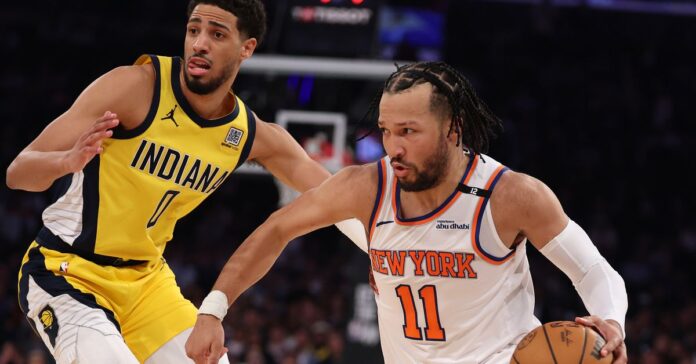What have you learned from the playoffs this year that could inform the Celtics offseason decisions?
Mark Aboyoun
One thing the NBA playoffs reminded me of is that there are no easy games — no matter the matchup. A lot of fans preferred a series against the Knicks because Boston swept them in the regular season, but the playoffs are a different beast. If the Celtics hadn’t let Game 1 and Game 2 slip away, the outcome might have been very different.
What stood out throughout the playoffs is that every team is capable of coming back from a deficit. That makes it even more important to stay aggressive when you have a lead. Looking back, I didn’t mind Boston settling for threes early in the series against New York because most of them were quality looks — they just didn’t fall. Still, a takeaway for the Celtics this offseason should be maintain offensive pressure when ahead, not just coasting or relying on threes.
One way to do that could be adding more bench scoring. Finding someone who can play alongside Payton Pritchard and bring an attacking mindset off the bench could help keep momentum going, especially in those moments when the starters are on the bench resting. It’s about making sure the offense doesn’t stall — even with a lead.
Ian Inangelo
What I learned from the playoffs this year is that building a culture with a core group of players is the most important aspect of being a championship caliber team. Look at the Pacers and Thunder. Last season both lost in the playoffs but with minor tweaks around an established young core they ran it back and won a championship.
I’m not saying trading for the super stars isn’t a good idea for a franchise but establishing chemistry and culture within an organization is an important factor in winning. Looking at a team like the Suns for example who had a young core make the finals but wanted more so they traded for KD and Beal and abandoning the chemistry they built. Now they’re in purgatory.
Patience is key and teams shouldn’t be so quick to pull the trigger on a star player that might look good on paper. Build from within and you will find success
Mike Dynon
What I hope the Celtics learned is that no lead is big enough and they need to stay aggressive and move the ball for 48 minutes. Not 36, not 42, all 48. They lost the Knicks series because they stopped doing what worked and blew 20-point leads two straight games. Both times, the Knicks were the aggressors and the Celtics failed to match that energy. In the fourth quarter of Game 1, Boston shot 4-21 (2-15 threes) and had just 2 assists for 16 points. We told ourselves that would not happen again, but Game 2 was more of the same: 5-24 (2-11) with 2 assists, 17 points.
In this three-point dominant era, you can no longer just run out the clock, yet the Celtics habitually slow themselves down, with Tatum or Brown dribbling in place and no one moving. Or they try to speed up and take a three after one pass or none at all. When the opponent has all the momentum and you have none, your threes just don’t fall, and the pressure increases. We see it all the time in the NBA, and that’s what happened here.
Contrast that to the Pacers’ fourth quarter of Game 6 versus the Knicks. They kept up the same pace that had given them the lead, attacked the paint and kicked to open shooters at the arc, or got middle-of-the-lane floaters from Haliburton. Their fourth quarter numbers: 13-20 (2-5), 7 assists, 33 points. Indiana was never in danger of losing their lead. The Celtics need to engrain that mentality into their system, and beef up the bench with players who have that mindset.
Jake Issenberg
My big takeaway from these year’s playoffs is that I think the Celtics leaned too much into variance this season. They upped their three point rate, and were one of the slowest teams in the league. There were obvious health issues with Porzingis and Jaylen that were the biggest factors in the Knicks loss. But the Celtics should still have won the series. I would implore Joe Mazzulla to focus on increasing the pace and randomness of the future Celtics offense. If they can become 11% more like the Pacers on offense it would benefit them greatly. More possessions equals less variance.
Jeff Clark
The Pacers proved that you can win with a high-paced, random offense, even in the playoffs where traditionally the pace has always slowed. The Celtics didn’t necessarily have the personnel to continually push the pace like Haliburton does, but Boston could have and should have played with more movement to bend the defense more. I know they were focused on mismatch hunting, but there are more ways to attack those mismatches than pure isolation. Jayson Tatum may always be a more deliberate player, and he’s proven he can thrive with that style, but I think as Brad Stevens reshapes his roster, he might want to target players that thrive in a more movement based offense. Likewise, I think Joe Mazzulla should focus on emphasizing those movement looks more when the offense gets stagnant. Next year will be a good time to experiment and tinker. What they were doing clearly worked last year, but the game evolves and you have to keep adapting too.




















